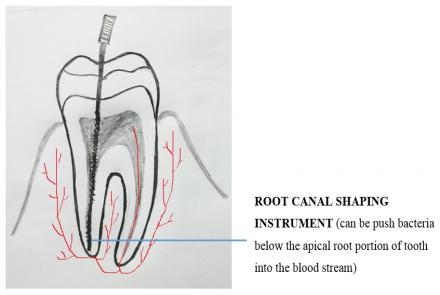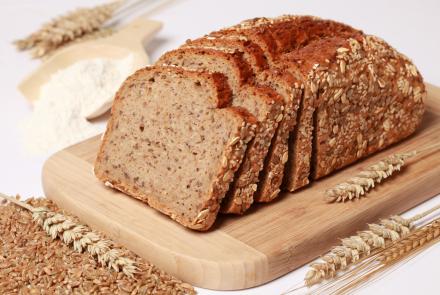
Dr. Snehil Mishra, Consultant Interventional Cardiologist, Hinduja Healthcare Surgical Hospital, dispels the fallacy that heart disease is a man's disease. On the contrary, it is the number one killer of women with symptoms in women being different than men.
Are women at a higher risk for heart disease than men?
The risk of heart disease in women is significantly underappreciated due to under reporting as well as lack of awareness. In most Western countries, the incidence of heart attacks is rising in middle aged women while the same is declining in men of the same age group. It will not be surprising if India mimics a similar picture soon. Besides, a number of risk factors of heart disease are unique to women and do not affect men at all. In fact, heart disease is the number 1 killer disease in women and the number of deaths attributable to heart illnesses in women is far more than those due to all the cancers combined together.
What are some of the heart attack symptoms unique to women?
It is extremely important to know that women may not present with the typical symptoms of heart attack like excruciating chest pain. They are much more likely to present with vague complaints like-
- epigastric distress.
- breathlessness.
- feeling of fatigue or unease.
- jaw pain.
- palpitations.
- loss of consciousness at times.
Sudden cardiac death as a presentation of heart attack is also more common in women than men. They also have a higher incidence of silent heart attacks which go unnoticed. It is for these reasons that heart disease in women may go undetected and treatment may be delayed even by doctors.
Which are the gender specific conditions that increase the risk of coronary artery disease for women?
The following gender specific conditions increase the vulnerability of women to heart disease as compared to men.
- Preterm Delivery.
- Hypertension in Pregnancy.
- Diabetes in Pregnancy.
- Weight gain post pregnancy. An adverse cardiometabolic profile emerges as early as 1 year postpartum in women who do not lose weight between 3 and 12 months after delivery.
2. Birth control pills and Hormone replacement therapy.
3. Inflammatory diseases like Rheumatoid Arthritis and Systemic Lupus Erythematosus.
4. Smoking and Alcohol - Women who smoke are at much higher risk for heart disease as compared to their male counterparts with a similar smoking history. The acceptable limits of alcohol are also lower for women as compared to men.
5. Stress and depression - Women's hearts are affected by stress and depression more than men's. This is especially important in young women with heart disease.
6. Chemotherapy and radiation therapy associated with breast cancer treatment.
7. Illnesses like Polycystic Ovarian Syndrome (PCOS) and Endometriosis.
How can menopausal women reduce their risk of heart disease?
- Increase awareness.
- Physical activity- At least 150 minutes of active exercise per week is a must. This may include brisk walking, jogging, swimming, dancing or any such similar aerobic activities.
- Healthy diet- Less oil, more greens and plant based food, avoid processed meals.
- Quit Smoking.
- Reduce weight with special emphasis on reducing abdominal girth.
- Regular physician consultations and treatment for risk factors as required.
Why are women with diabetes at a greater risk for heart disease than men?
The metabolic profile of diabetes in women is different as compared to men and the associated derangements in cholesterol levels include higher levels of bad cholesterol, lower levels of good cholesterol and increase in particles which tend to deposit in vessel walls as well as increased inflammation. All this puts women with diabetes to be at a higher risk for heart disease than male diabetics.
Do birth control pills and smoking increase heart disease risks for younger women?
Yes. Certain birth control pills are associated with a higher incidence of heart disease and hence they should be taken only after a thorough review of the women's risk profile by a doctor. Women have 25% increased risk for CAD (coronary artery disease) conferred by cigarette smoking compared with men. The combination of smoking with oral contraceptive use has a synergistic effect on risk of heart disease.
Why are women with heart diseases treated less aggressively than men?
Patient’s as well as doctor’s lack of awareness of the significance of risk factors in women means that they are often under treated. They are also unwilling to undergo the desired cardiac rehabilitation sessions in view of their assumed familial responsibilities.
Why are women less likely to get bypass surgery and stents?
As women with heart attacks may present late due to atypical complaints as well as lack of awareness, the damage to the heart may be irreversible and therapies like stenting and bypass may not be of much help. Besides, women with heart attacks tend to have a higher incidence of obstruction in smaller arteries of the heart as compared to men and surgical treatments are not very effective for such diseases.
Do women fare worse than men after a heart attack?
Yes. The incidence of complications like heart failure and cardiac arrest is much higher in women who have a heart attack as compared to men. The response to conventional treatments is also more variable in women as compared to men.
Is there a rise in incidence of cardiovascular disease among women in India? Why?
The overall increase in the metabolic epidemic in India which includes illnesses like obesity, diabetes and hypertension has related to a surge in cardiovascular disease in women especially in relation to pregnancy and also in the post-menopausal age. Besides, adoption of Western culture, peer pressure and influence of media has increased the number of young women who smoke in India. Levels of stress and depression are also rising in Indian women. All these combined with unhealthy diet and sleep patterns and a lack of physical activity have increased the incidence of heart diseases in Indian women.
What are the 5 things every woman can do to reduce her risk for heart disease?
- Be aware that heart disease is not a man's disease.
- Know her risk profile and keep her weight, abdominal girth and levels of BP, sugars and cholesterol under control.
- Quit smoking.
- Be physically active.
- Adopt a healthy lifestyle with regards to diet, sleep and mental health.
Dr. Snehil Mishra, Consultant Interventional Cardiologist, Hinduja Healthcare Surgical Hospital
















